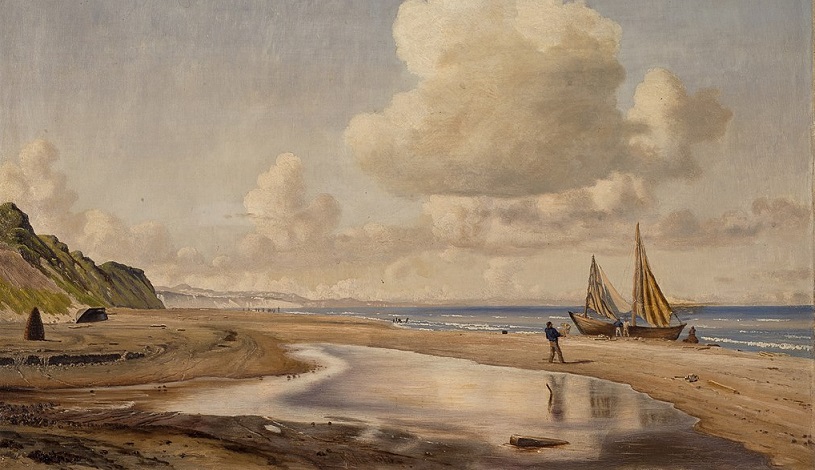.
Walking Near the Waves
When, walking near the waves, with eyes downcast,
I look at my reflection from the shore,
Which seems to sink towards the ocean’s floor,
Weighed down by tears, which into tides have massed;
The memory of joys forever past
Resurfaces, and brings me back once more,
Back to the arms of whom I most adore,
In which I lie, and find relief at last;
Relief from loneliness, relief from care,
From charting vain ambition’s boundless bounds,
From explorations of its novel grounds,
Whose barrenness yields nothing but despair;
But if such waves of memory bring relief,
They wash me back towards the shore of grief.
.
.
Daniel Joseph Howard studied law in his native Ireland before taking his MA in philosophy at King’s College London. After working in the European Commission, he is now pursuing a PhD in Philosophy at Boston College.















Love this! This is just as I
experience Memories as
well: What lift us up then
bring us down.
A melancholy, long, withdrawing roar. Interesting that you twice use the word “towards” pronounced with two syllables, which weighs the line down, like the weight of grief, and maybe even like the sound of a wave. (However, that could be the difference between Irish and American accents.)
After reading your poem and bio, pursuing a Ph.D. in Philosophy would seem to suit you well. Relief from loneliness is fleeting when we must return to emptiness once more.
This poem is the very exemplar of bittersweet. I wish I had had some of the feelings that impelled you to write it in the first place.
“From charting vain ambition’s boundless bounds” is a memorable line.
A beautiful poem. I love the way you carried the water metaphor through.
The end here has for me something of the effect of listening to the end of a movement by Brahms or Tchaikovsky, in which the 2nd theme group returns in the expected major key before the coda, ending pointedly if not inevitably in the minor.
The final couplet says it all. Nicely done, Daniel.
Daniel, this well-crafted sonnet is exquisite in its sadness and taps into the nature of grief poignantly and perfectly. The closing couplet sums up the capricious nature of this emotion with truth and beauty. Very well done indeed!
Daniel, this is an admirable sonnet of the first rank. I especially enjoy the care you take to make each quatrain self-contained, offering its own distinctive contribution to development of the whole. The opening quatrain establishes an unusual seaside perspective, and it is the one with the most characteristic sea imagery, which is taken up lightly by the middle two quatrains, but most dramatically by the couplet. I would compare the whole to an intaglio design carved on an aquamarine gemstone, supposing the aquamarine to be hard enough to be suitable for such artistry!
Daniel your poem is moving; it’s very well constructed, and it flows beautifully. The inner conflict of the speaker is very nicely, brought out.